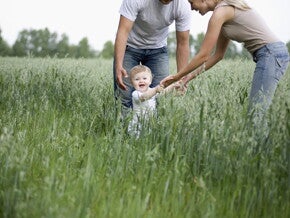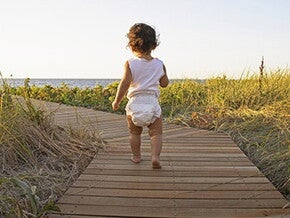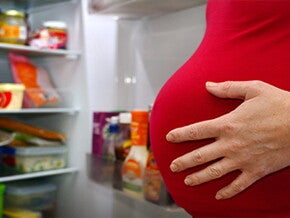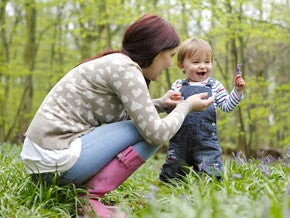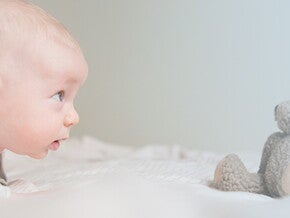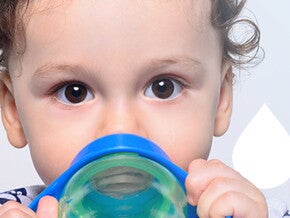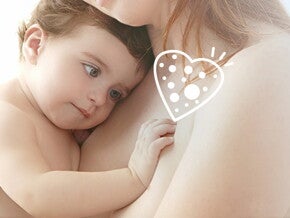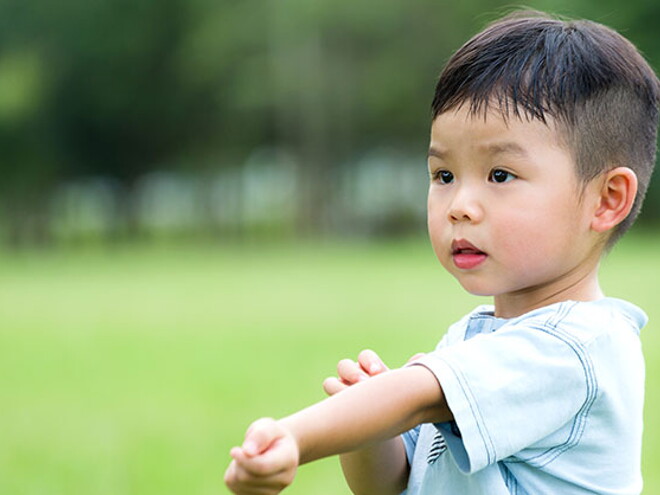
Recommendations for one age may be useful for other ages.
Diarrhoea
At this age, your baby can experience minor digestion problems. Your baby’s stools can be yellow and quite runny and you may find yourself changing her nappy up to 7 or 8 times a day! While common, diarrhoea can be dangerous for your baby. Dehydration can come on rapidly, so always see a doctor. He can prescribe sachets of rehydration solution for your baby to drink. Keep an eye on your baby’s weight and if your baby vomits or cries more than usual, visit your doctor. Whatever the symptoms, it is essential you let a doctor examine your baby.
Constipation
On the other hand, if your baby is passing hard or small stools and cries when she empties her bowels, consult your doctor. Water with high amounts of minerals is recommended under strict medical supervision.
Regurgitation
Regurgitation is very common among most babies. Generally, babies outgrow this problem between 6 and 12 months when they start to sit up. To help prevent regurgitation, follow these few tips:
| Dont's | Do's |
| Sitting positions, particularly in a baby chair. | Spread feeds more evenly over the day. |
| Smoky environments. | Burp your baby several times before bedtime. |
| Fruit juice. | Raise her mattress slightly. |
| Forcing your baby to finish feeding. |
Colic
This is the age when colic can occur. Your baby can cry for prolonged bouts, sometimes hours at a time, and may be inconsolable. Your whole family will panic and you may blame yourself for not being able to calm your baby, but there is nothing much you can do. If your baby is eating normally, smiling outside of these crying spells and your doctor says everything is okay, there’s no need to worry. Relax, hold your baby and rock her gently. This will comfort your baby and calm her down a little.
Fever
A fever is not normal and you need to keep an eye on it. Don’t hesitate to see your doctor.
Gastroenteritis, colds and other minor symptoms
To stop your baby from catching gastroenteritis or other viruses, the best prevention is still to wash her hands regularly. Be sure to ask anyone who comes into contact with your baby to do the same. Children breathe through their nose. When their nose is blocked, respiratory problems may arise. If your baby has a common cold, a saline solution is the best remedy. However, if the problem persists or is accompanied by wheezing or other symptoms, take your baby to see a doctor.
Nappy rash
When your baby is teething, a red bum is not uncommon. This could be nappy rash and a visit to your doctor is advisable. Don’t forget the importance of strict hygiene. Wash your baby’s bum with water and mild soap after each bowel movement and dry gently. If necessary, your doctor may recommend a protective cream. Change your baby’s nappy as often as possible. Nappy rash can appear quickly, but can take some time to clear up.
Ear infection
When your baby has a cold, she may also suffer from ear infection. This can be accompanied by earache, fever and sometimes diarrhoea. Your baby may be grumpy, shake her head when crying or even touch her ear constantly. See your doctor if you have the slightest concern.
Fever
Viral infections can give your baby a fever. Avoid covering up your baby too much and check the room temperature. Give your baby something to drink regularly in addition to fever medication prescribed by your doctor. Bathing your baby in warm water and gently massaging her head is also recommended. If your baby is sleeping a lot or behaving unusually, see your doctor immediately.
Baby illnesses
At this stage, babies are no longer protected by their mother’s antibodies, and being in contact with other children, can catch viruses from teddies or toys. This is the period when baby illnesses (e.g. diseases accompanied by skin eruptions like measles, rubella and chickenpox) can occur. Mumps, which are common, can be recognized by inflammation under the jaw. If your baby is affected by any of these illnesses, see your doctor and check your baby’s temperature regularly.
Everyday small injuries
Now that your baby is learning to walk and starting to explore, she can easily fall and cause herself injury. For bumps, the best remedy is to rub the injury with a glove filled with ice several times a day. Your doctor may also recommend an ointment to apply.



